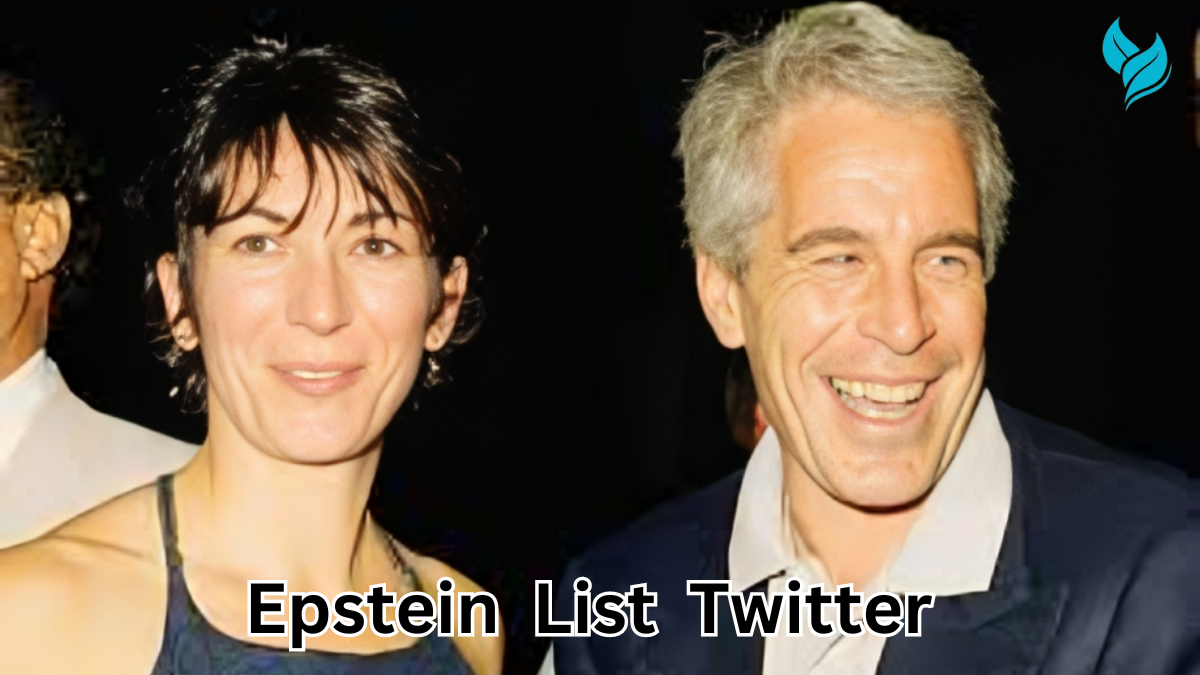The term “Epstein List Twitter” refers to the ongoing dialogue and controversy surrounding Jeffrey Epstein’s connections, as discussed on Twitter. This list of individuals linked to Epstein has become a focal point for intense scrutiny and speculation. Twitter, with its real-time updates and viral nature, amplifies both verified information and unfounded rumors about those associated with Epstein. The platform enables users to rapidly share news, theories, and opinions, creating a digital echo chamber where discussions about the Epstein List can escalate quickly.

What Is the Epstein List?
The Epstein List, often mentioned in media, describes individuals allegedly linked to Jeffrey Epstein, the convicted this ffender. This list allegedly contains names of prominent figures who may have had interactions with Epstein, whether personal, professional
Understanding the Epstein List Twitter Phenomenon
The term “Epstein List Twitter” highlights the intersection of social media, legal issues, and public interest.
What Is the Epstein List?
The Epstein List names individuals allegedly linked to Jeffrey Epstein, the notorious financier and convicted sex offender.This list, discussed in media and legal contexts, includes names of people linked to Epstein.
Origins of the Epstein List
The Epstein List first drew public attention through court documents and investigative journalism. The list reportedly includes names of people linked to Epstein’s social circles, flight logs, and other related data. While some of these names have become public, many remain concealed due to legal constraints and ongoing investigations.
The Role of Twitter in Amplifying the Epstein List
Twitter has played a crucial role in the dissemination and discussion of the Epstein List. The platform’s real-time nature lets users share information quickly, spreading both accurate and inaccurate details. Here’s how Twitter has influenced the conversation:
1. Public Discourse
Twitter users frequently discuss the Epstein List, sharing their own theories, news articles, and updates. This public discourse can both inform and mislead, depending on the source of the information.
2. Misinformation and Speculation
The rapid spread of information on Twitter also means that misinformation can circulate quickly. Users often speculate about the identities and implications of those on the Epstein List without verified evidence, leading to confusion and potential defamation.
3. Calls for Accountability
Many Twitter users and activists use the platform to call for accountability and justice regarding those named in the Epstein List. These calls often include demands for further investigation and legal action, reflecting broader public sentiment on the issue.
Impact of the Epstein List on Public Perception
The Epstein List has had a profound impact on public perception, influenced significantly by its portrayal on Twitter. Here are a few key aspects:
Increased Scrutiny of Public Figures
Individuals named or associated with the Epstein List often face intense public scrutiny. Platforms like Twitter can cause significant reputational damage, even when the allegations lack full substantiation
Influence on Legal Proceedings
The discussion surrounding the Epstein List on Twitter can impact legal proceedings by influencing public opinion and putting pressure on legal institutions. While it can help bring attention to the case, it can also lead to challenges in ensuring a fair and unbiased legal process.
Amplification of Conspiracy Theories
The open nature of Twitter allows for the proliferation of conspiracy theories related to the Epstein List. While some users seek to uncover the truth, others may promote unfounded claims, complicating efforts to address the actual issues at hand.

FAQs
What is the Epstein List?
The Epstein List refers to a list of individuals allegedly connected to Jeffrey Epstein, a financier and convicted sex offender. It includes names of people who had various associations with Epstein.
How did the Epstein List become public?
The Epstein List became public through a combination of court documents, investigative journalism, and leaks. The list has sparked widespread discussion and sharing on platforms like Twitter.
What role does Twitter play in the Epstein List controversy?
Twitter serves as a platform for sharing information, discussing theories, and calling for accountability regarding the Epstein List. However, it also facilitates the spread of misinformation and speculation.
Are the names on the Epstein List verified?
Some names on the Epstein List have been verified through official documents and credible sources, while others remain speculative or unverified.
How has the Epstein List affected public figures?
Public figures named or associated with the Epstein List often face increased scrutiny, reputational damage, and pressure from the public and media.
Conclusion
The Epstein List Twitter phenomenon highlights the complex dynamics between social media, legal matters, and public opinion. As discussions continue, it’s essential to approach the information with a critical eye and seek verified sources to understand the full context of the Epstein List and its implications. Twitter remains a powerful tool for both information and misinformation, influencing how the Epstein List is perceived and discussed in the public sphere.











